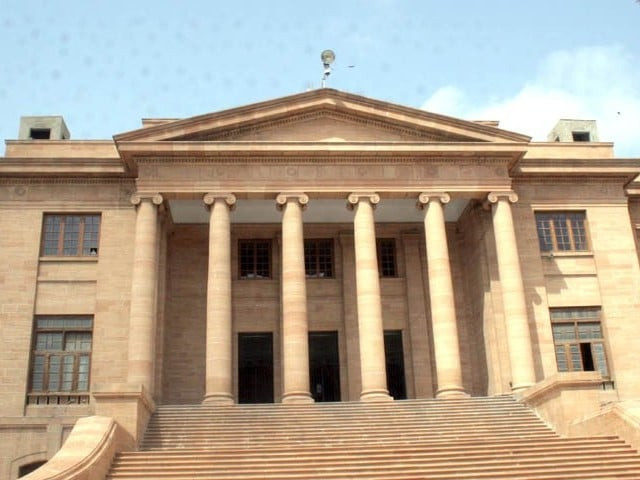Fearing deportation: SHC restrains interior ministry from taking coercive action against Syrian national
The Syrian national apprehends deportation to his war-torn country as his visa is unlikely to be extended

The Syrian national apprehends deportation to his war-torn country as his visa is unlikely to be extended. PHOTO: EXPRESS
A division bench, headed by Justice Sajjad Ali Shah, also allowed time to the standing counsel to file comments of the interior ministry and others till then. These directives came on a petition jointly filed by the Syrian national, Abdullah Halima, and his Pakistani wife, Shumaila Abdullah.
They named the interior secretary, the provincial home secretary, the director-general of the immigration and passports department, the director-general of the Federal Investigation Agency (FIA) and the superintendent of police’s special branch as respondents.
Abdullah submitted although he is a Syrian but he was actually born in the Kingdom of Saudi Arabia, where his father was employed and from where he completed his higher secondary degree. In 2001, he arrived in Pakistan and completed his Bachelor’s of Science in Computer Sciences from the Preston Institute of Management, Science and Technology in 2008.
The same year, the petitioner said, he was appointed by a known company from where he had resigned in February 2014. Later, on the basis of his marriage to a Pakistani woman, he applied for POC but the office of the Foreign Affairs asked to obtain his wife’s ID card on his name first.
They judges were informed that Shumaila married Abdullah on June 29, 2013, in Karachi. Their marriage was duly registered with the civic bodies and the National Database Registration Authority also issued them a marriage certificate. The marriage document was also attested by the Pakistani Foreign Affairs Department as well as the Syrian embassy.
Shumaila applied to NADRA to have her husband’s name on her CNIC and it is likely to be issued soon, said the petitioner, adding that all legal formalities as well as the documents for the issuance of Pakistani Origin Card have been completed.
Earlier this month, the petitioner received an email from his former employer, containing two letters issued by the FIA DG and the Special Branch superintendent indicating that his visa is likely to be cancelled. He claimed that this action is being initiated against him on the basis of professional jealousy.
“The real brother of the petitioner, his cousin, his cousin’s son, brother-in-law, a paternal uncle and a maternal uncle have been killed in the present civil war in Syria,” pointed out his lawyer, Rafi Kamboh. “Apart from this, one of his brother-in-laws has been injured and the petitioner’s house has been destroyed.” In such circumstances, Kamboh said his client cannot go back to Syria and all the Gulf countries do not allow entry to a Syrian.
He requested that Abdullah’s case deserves special consideration in the present state of affairs and, on humanitarian grounds, he may be issued a permanent origin card on the basis of his marriage.
He argued that the provisions of Section 10 of the Pakistani Citizenship Act 1951 entitles a woman for citizenship of Pakistan upon her marriage to a Pakistani national, which is in violation of Article 25 of the Constitution. “The Federal Shariat Court has already declared the provisions of Section 10 of Pakistan Citizenship Act, 1951, are against the injunctions of Islam,” he stated.
He maintained that the petitioner is entitled to seek a permanent citizenship card for having lived in Pakistan since 2001 and there are no allegations against him. Under Section 11 of the NADRA Ordinance, 2000, the petitioner also stands entitled to get a permanent citizenship, he pleaded, asking his visa to be extended as it is due to expire on October 2.
During Wednesday’s proceedings, the standing counsel requested for time to file the comments of the federal authorities. Allowing the request, the SHC bench extended its earlier interim order, restraining the authorities from taking any coercive action against the petitioner till October 5.



















COMMENTS
Comments are moderated and generally will be posted if they are on-topic and not abusive.
For more information, please see our Comments FAQ